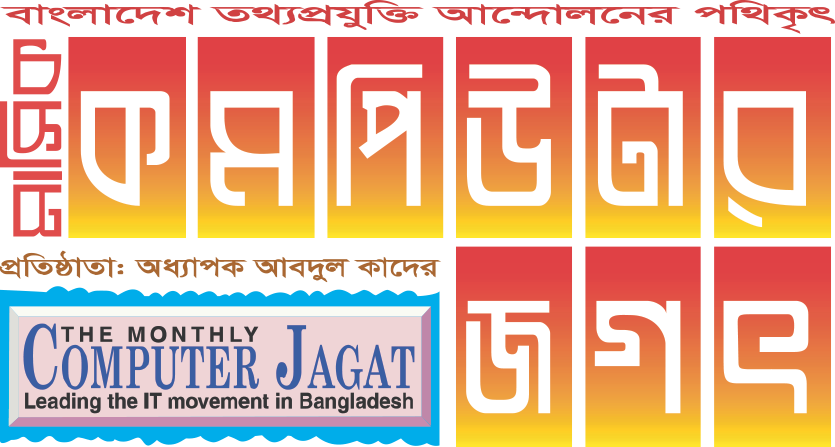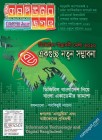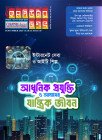হোম > Information Technology and Digital Bangladesh
লেখক পরিচিতি
লেখকের নাম:
আহমেদ হাফিজ খান
মোট লেখা:১৫
লেখা সম্পর্কিত
পাবলিশ:
২০১০ - মার্চ
তথ্যসূত্র:
কমপিউটার জগৎ
লেখার ধরণ:
ডিজিটাল বাংলাদেশ
তথ্যসূত্র:
ইংরেজি সেকশন
ভাষা:
বাংলা
স্বত্ত্ব:
কমপিউটার জগৎ
Information Technology and Digital Bangladesh
Information technology, which started as a technology for the scientists and engineers has penetrated deep into our society. The technology’s power of developing the society is so immense that today it is tagged with important revolutions of Steel Age, Bronze Age to today’s Information Technology Age. Developed and developing countries have found common technology to foster global economic development and bridging the divides of haves and have nots.
Globally information technology has largely been used as a knowledge-sharing and business automation tool replacing many old ways of doing things—from accounting to ERP, snail to electronic mail, library indexes to online searches and even online-only banks. Though it evolved as a corporate and personal enabler, IT has a deep social presence and impact as well. Think citizen journalism and micro-blogging, where ordinary people can share thoughts and expose facts in ways that were largely unthinkable merely a decade ago.
In the same stride, IT can be used very effectively to make the society we live in more transparent by bringing in accountability through timely and relevant publishing of data that matters. This is particularly true for public sector organizations in developing countries where people generally believe that it takes too long to get anything processed—let alone finding the status of civic service requests.
Take for example BoI — Board of Investment of Bangladesh. Investors can easily search and cross-check their registration status details via BoI file tracking system. Such information is universally available, it makes quite difficult for sharks in the organization to harass the potential investors. Availability of train tickets through cell phone will surely mitigate the plights of hundreds of passengers queuing during Eid holidays. And this happens by simply empowering the citizens by using Information Technology (IT) based applications accessible.
Thus, publishing all the available data even in most basic searchable format and providing services through IT over the internet is the first step towards introducing culture of visibility and openness. The inherent conflict of interest between those perceived to be wronged and those perceived to be corrupt ensures that neither of the one gets a good deal.
Internationally, a lot of effort has gone into utilizing IT for public sector accountability. In the USA, initiatives such as Federal Funding Accountability and Transparency Act of 2006 and Open Government Directive makes federal funding data available to the general public. Sites such as Fedspending.org and UsaSpending.gov have detailed online catalogues, dashboards and breakdown of government contracts, loans, grants, direct payments etc, along with data.gov that has grown from 47 to 168,000 online datasets in less than a year.
Similarly, Edgar database at Sec.gov provides public access to corporate reports that are filed periodically and contain financial and audit reports. In the UK, data.gov.uk provides datasets that include everything from crime, environment, education and transportation. These sites provide extensive search mechanisms, allow visitors to suggest additions in the data offered and ensure data availability in universally accessible formats, such as simple text files.
Building upon information availability made possible through legislation, voluntary participation or through community participation (such as customer rights groups), the next step is to put in place a mechanism that allows resolution of objections, discrepancies and complains identified against the data. Also, informing everyone about time it takes to offer a particular service, and status of in-process requests goes a long way in ensuring transparency.
For instance, if the revenue and Development budget utilization data, along with status of all public service projects with progress against contract conditions, is available online, citizens can easily validate (and question if required) the basis of funding and independently monitor the quality of deliverables. This can become a great tool for investigative journalism as well as keeping abreast with the what, who and where of everything. This can eventually take the form of ‘Google for government’ envisioned by Barack Obama where citizens would be able to know nearly everything about government by simply browsing through data of various agencies and divisions.
Transparency through data availability can have a number of incidental advantages too. Not only does it pave way for informed decision making (think of individuals browsing through Geographic Information System to verify land ownership records and last-paid sale price before buying a home), it will also assist in long-term policy making since data of public initiatives and their outcomes can be mapped over time without manipulation. With effective data capturing tools at the last mile, transactional data such as number of patients, diagnosis of disease and medicine availability in case of public health services can, in fact, save lives by allowing proper response against developing scenarios.
IT is not a solution in itself, but a tool which if used properly, has the potential to empower ordinary citizens like never before. To harness the power of IT the government needs to utilize the best of its IT graduates to design and implement the show. Unfortunately our society in general and bureaucrats in particular, which has lost its honesty, has grown appetite for earning easy money and lavish lifestyle through misappropriation of development funds. The sycophants in the government have smelled ‘money’ in government’s vision of Digital Bangladesh. Their heinous move to curtail the authority and degrade Bangladesh Computer Council (BCC) and Bangladesh Telecommunication Regulatory Commission (BTRC) is an ominous sign of danger. Recent announcement such as taking away the licensing authority of BTRC by the Ministry of Post and Telecommunication and degrading BCC to directorate are counter to the concept of political vision of Digital Bangladesh. The sabotage of government’s program from within its bureaucracy shows the weakness of the political leadership of the government.
CJ WEB
লেখাটি পিডিএফ ফর্মেটে ডাউনলোড করুন
লেখাটির সহায়ক ভিডিও
পাঠকের মন্তব্য
অনুরূপ লেখা



